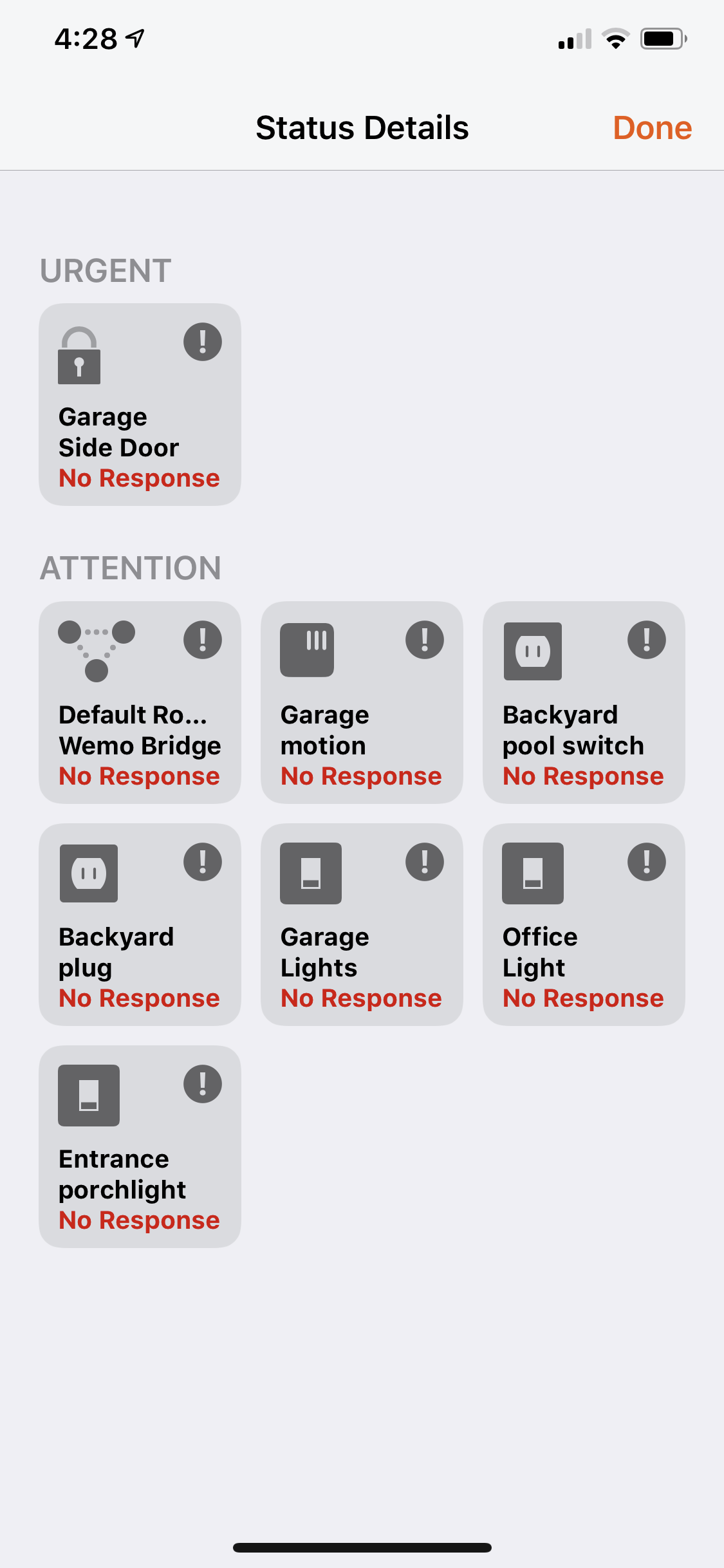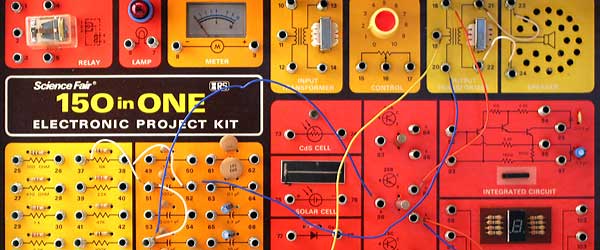Why I continue to endure the internet of things
I don't mind that my love of internet-connected gadgets makes me a punchline on a podcast but just to give you an idea of what it's like, here's my Apple Home app currently showing a bunch of failed connections because my Wemo Bridge died for no reason last week. This also means none of these lights are automatically turning on or off any more.

As I was resetting, restoring, and setting all of the lights up again, it was natural to pause for a moment to think about why I keep doing this.

I think this all goes back to the early 1980s. My brother got one of those Radio Shack 150-in-1 electronic kits and we used it to build a variety of little machines. Once, when we figured out how the light sensor could be wired to the siren, we devised a trick.
We emptied a dresser drawer of clothing, put the kit rigged to go off inside it, and waited in the next room for our mom to put away some clean laundry in the drawer. She eventually opened the drawer, the light sensor hit, and the siren automatically wailed. I remember socks were everywhere around the room and my mom was yelling at us that it wasn't funny.
Ever since that day, I've wanted computers to do all the pesky annoying tasks in my life. After the Radioshack kit, I soon graduated to putting automatic timers on lamps, but those were simple and batteries eventually wore out.
In the late 1990s, I got into x10, the new standard for lamps that let them talk to computers over electrical wires, and at one point I had an apartment in LA with a variety of light bulbs and switches controlled by my PC. Yet still, the systems weren't very smart and mine couldn't distinguish weekends from weekdays and I would frequently find myself in a pitch black apartment at exactly 11:00PM whether I was ready to go to sleep or not.
At some point in the early 2000s, the x10 standard grew up and a few more standards got popular, and at one point I had timers on lights around the house that were a bit smarter. I could set lights to turn on at sunset and turn off at a certain time, but I could also add +/- 15min of "drift" to automatically randomize the times things turned off and on so they didn't look too predictable to outsiders.
A few years ago, I decided to dip back into this when internet-connected devices started appearing, and when Apple released Homekit, it kind of sent everything into overdrive for me.
Right now, I have a few hue bulbs, a bunch of Wemo wall switches, light switches, and room sensors all around the house, a garage door that connects to my wifi, and a couple August door locks. With this mix of devices and the Apple Home app, I have basic stuff like front yard and backyard lights that come on at sunset and go off later in the evening. I can daisy-chain things together to get the lights in the garage to turn on when someone opens the garage door for five minutes, but only at night. I can also do things like turn on my office light when I walk in the room and don't auto-turn it off if I'm still inside it.
And yet.
This stuff has historically been super buggy. Things will work, then just up and die for no reason a week later. A sensor will lose the wifi connection briefly and never come back online. Things are generally improving but I feel like x10 in the early 2000s was more reliable than what we have today.
For about six months, everything worked great in Homekit. And after a rocky start, my wifi garage door actually became reliable for a good solid period of time. Then iOS 12 came out. And then Wemo updated the firmware on all their devices. Then one of my mesh-network wifi points stopped seeing the others. And for the last two months, things have randomly worked about half the time, and failed spectacularly.
I keep plugging away at this stuff, and I don't think it's outlandish to expect it to work, and work forever once you set things up. I think we can get there, but with our mish-mash of standards and hodge-podge devices and wifi, it's not a smooth or predictable area of technology.
I'm still convinced technology can improve people's lives and help everyone out, by letting us set up recipes and schedules that are truly reliable enough to be set-it-and-forget-it. It's not asking too much to think this tech can free us up to spend our time and energy on more important things than remembering to turn on the porch light every evening.
I still think we can get there, no matter how rocky the road currently seems. At least I hope we can. I'll keep trying, no matter how many times it fails on me.
Subscribe to our newsletter.
Be the first to know - subscribe today





